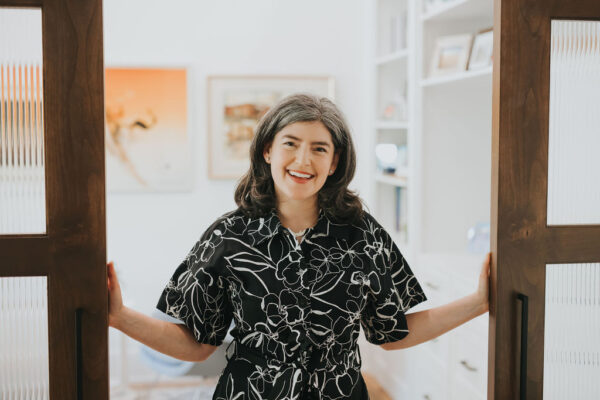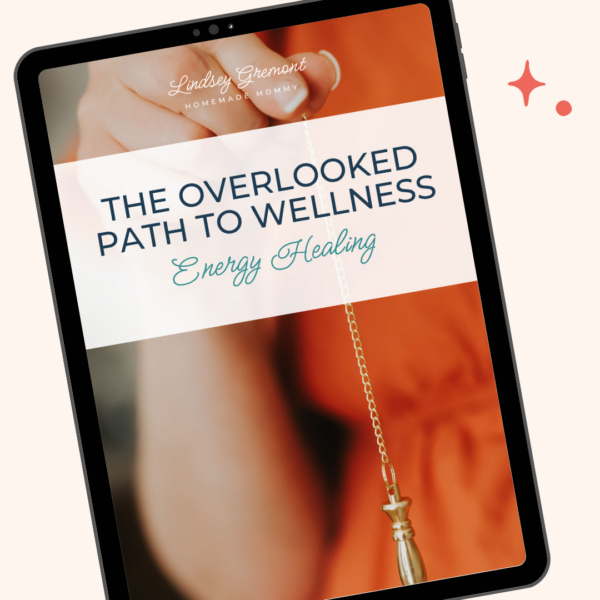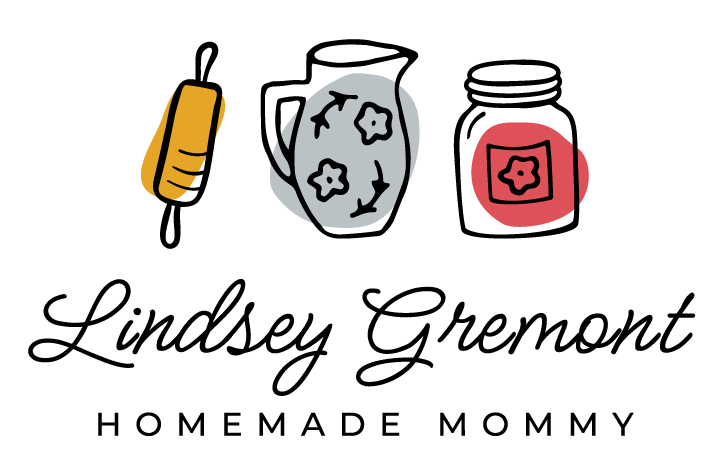When You Said ‘No’ to the Jab and They Said ‘No’ to You

Let’s have an honest conversation. Being a homebody has become not just acceptable but celebrated since 2020, hasn’t it? Social media is filled with memes celebrating canceled plans, the joy of staying home with pets instead of people, and the relief of having a legitimate reason to avoid social gatherings. I’ve been thinking a lot about what’s happening to our collective social muscles.
But here’s a question worth asking as we emerge from the pandemic battleground, scarred but still standing: Are we truly embracing our authentic desire for solitude, or have many of us unconsciously fortified emotional bunkers around our wounded hearts—protective barriers built brick by painful brick as we fought for medical freedom against mask hysteria and vaccine mandates, all while weathering the hurricane-force vitriol from former friends, colleagues, and even family who suddenly treated us like dangerous outcasts for simply standing our ground?
The COVID Connection to Heart Walls
According to Dr. Bradley Nelson, the creator of the Emotion Code and author of “The Emotion Code” book, an astounding 93% of people have what he calls a “heart wall” – an energetic barrier created by trapped emotions that the body builds to protect the heart from emotional injury. That statistic was from before the pandemic. Imagine what it might be now.
The pandemic created the perfect storm for heart wall construction or reinforcement:
- Collective trauma as society divided over pandemic responses
- Watching others embrace isolation while you did your absolute best to maintain social normalcy for yourself and your kids
- Being excluded from gatherings that moved online-only
- Facing fear and judgment from those who bought into panic
- Witnessing friends and family retreat into their homes while you stood for freedom
- Painful divisions forming as relationships fractured over medical choices
What began as government-mandated physical distancing based on flawed science and media fear-mongering has, for many, transformed into emotional distancing that’s outlasted the manufactured crisis. While you saw through the propaganda and maintained as much normal human connection as you could, others retreated into isolation and then rejected those who refused to follow along. These divisions created far more damage than any virus ever could.
When COVID Turned Friends into Strangers: The Political Heart Wall
Let’s talk about the elephant in the room – the deep social fractures that formed during the pandemic. Perhaps you were someone who questioned masks or social distancing measures. Maybe you had concerns about vaccine mandates or felt differently about risk assessment than others in your social circle.
The result? Friendships that had lasted decades suddenly strained or shattered. Family holiday gatherings became battlegrounds or were canceled altogether. Social media became a minefield where expressing your perspective might result in being labeled, shamed, or even “unfriended” in real life.
This wasn’t just disagreement – this was heart wall material in its purest form. Each judgment, each dismissal, each painful conversation where you felt misunderstood or attacked was a perfect opportunity for your body to say, “We need protection here,” and add another brick to that energetic barrier around your heart.
For many, the experience went something like this: You share your perspective on masks or vaccines in what you believe is a reasonable way. Someone you’ve known and trusted for years suddenly treats you like you’re dangerous or morally deficient. The body registers this as rejection and betrayal. Brick added to heart wall.
Or perhaps family members made attendance at gatherings conditional on medical choices you weren’t comfortable with. The pain of being excluded from your own family circles? Several more bricks added.
Maybe you watched as friend groups reorganized around pandemic perspectives, leaving you on the outside of circles where you once felt belonging. That sensation of community loss? Another layer on the heart wall.
These weren’t minor disagreements – they were fundamental ruptures in how we viewed reality, safety, freedom, and responsibility. And they happened at a time when we were already vulnerable from the stress and uncertainty of a global crisis. It was the perfect recipe for heart walls to form or existing ones to strengthen.
The Resistance Fatigue Effect: Why Even Freedom Fighters Get Tired
Neuroscience tells us that constant battle takes a toll on our nervous systems. During those months (or years) of fighting against the tide of social pressure, defending your choices, and facing rejection for standing firm, your nervous system likely went into a chronic stress response. For those of us who refused to isolate but paid a heavy social price, our brains may have adapted in a different way—not from lack of connection, but from constant defense of our right to connect.
This isn’t just theoretical. Research on social rejection shows it activates the same brain regions as physical pain. When you’ve been repeatedly treated as dangerous or irresponsible for your medical choices, your brain processes that rejection as a threat. Over time, some who bravely maintained normal life despite social pressure may have unconsciously built protective barriers not from fear of the virus, but from the exhaustion of defending their stance.
The result? Even as the world slowly acknowledges the overreaction and vindication comes for those who questioned lockdowns and mandates, many freedom fighters are feeling unexpected hesitation about rebuilding certain relationships. This isn’t because you were ever afraid—it’s because fighting for normal human connection for two years while being vilified for it was exhausting. Your heart wall likely formed not from fear of people, but from the drain of constantly defending your right to be with them on your own terms.

Your Body Has the Answers
Get The Overlooked Path to Wellness – a free guide revealing why symptoms persist despite tests, how your body uniquely communicates, and the personalized approach to healing you’ve been missing.
Heart Walls vs. Natural Introversion vs. Post-COVID Adaptation
So how do you know if you’re dealing with a heart wall, natural introversion, or simply adjusted habits from the pandemic? Here are some clues to help distinguish between them:
Sign #1: Your “hermit lifestyle” represents a significant shift from your pre-pandemic self
Natural introversion is generally consistent throughout life. If you were the one who always organized get-togethers and stood against lockdown measures in 2020, but now find yourself hesitant to rebuild certain relationships, that’s not a personality change—it’s likely a heart wall that formed as protection against the rejection, judgment, and betrayal you experienced for standing up for medical freedom.
Sign #2: Your need for isolation feels more like anxiety than preference
Healthy introversion means you genuinely enjoy time alone and feel recharged by it. A heart wall, however, might make you feel safer keeping certain people at a distance but not truly fulfilled by that separation. This isn’t about fear of getting sick—you’ve never bought into that narrative. Rather, it’s about the emotional exhaustion of dealing with people who revealed their true colors during the pandemic. If you find yourself avoiding reconnection with former friends who treated you like a pariah for refusing the jab or masks, that’s not anxiety about health—it’s your heart protecting itself from people who betrayed your trust and friendship over medical choices.
Sign #3: You’ve become selectively guarded, even with allies
The strongest defenders of freedom during the pandemic often maintained close physical connections while society pushed isolation. Paradoxically, these same freedom fighters might now notice emotional walls forming—not from hiding away, but from the spiritual and emotional exhaustion of watching friends, family members, and colleagues succumb to mass formation. If you stood firm against the tide yet now find yourself emotionally distant in relationships that once felt effortless, that’s not a personal failure—it’s your heart protecting itself after witnessing how quickly society abandoned reason and turned against those who questioned the narrative.
Sign #4: Your body reacts when reconnecting with those who betrayed your trust
Your body doesn’t lie. If you find yourself experiencing physical tension—chest tightness, throat constriction, sudden headaches or digestive issues—when facing interactions with people who once judged or rejected you for your medical choices, that’s not fear of illness. It’s your body’s visceral reaction to the betrayal and judgment you endured, a physical manifestation of your heart wall activating to protect you from those who proved themselves untrustworthy during the crisis.
The Health Impact of Forced Isolation Policies
While you questioned isolation policies, many people you care for followed the mandates and separated themselves from normal human connection. The consequences of this mass experiment in social deprivation are now becoming clear and scientifically validated:
- A 25% increased risk of premature death from all causes
- A 29% increased risk of heart disease
- A 32% increased risk of stroke
- Accelerated cognitive decline in older adults
- Significantly higher rates of depression and anxiety
- Suppressed immune function (proving that isolation actually made people more vulnerable to illness)
These statistics show that humans need in person connection to thrive, and policies that force separation cause more harm than good. By refusing to isolate, you protected not just your liberty but your physical health—even as you were criticized for it.
The Post-Pandemic Heart Wall Epidemic
If Dr. Nelson’s pre-pandemic estimate of 93% of people having heart walls was accurate, we can only imagine how that percentage has grown. The pandemic created a perfect justification for those heart walls to strengthen and expand. What was once a subconscious protection mechanism became a conscious lifestyle choice validated by public health guidelines and reinforced by social divisions.
For those who found themselves on the “wrong side” of prevalent opinions about masks, social distancing, or vaccines, the heart wall construction was often intense and multi-layered. Each time you were labeled as “selfish,” “uninformed,” or “part of the problem” for questioning certain measures or making different health choices for yourself and your family, your body likely responded by adding protective emotional barriers.
The alienation was often profound. People who chose not to get vaccinated sometimes found themselves uninvited from weddings, holiday gatherings, and other significant life events. Those who questioned mask efficacy or distancing protocols were sometimes treated as if they had suddenly become conspiracy theorists overnight, regardless of their reasoning. These weren’t just disagreements – they were identity-level rejections that cut to the core of belonging.
But here’s the challenge we face now: public health guidelines have evolved, but our emotional barriers and social divisions may not have adjusted accordingly. We’ve developed a collective story that staying separate is safer—not just physically, but emotionally too. The tribal lines drawn during the pandemic have hardened into what feels like permanent social reorganization.
The problem? Those strengthened heart walls don’t distinguish between genuinely risky connections and the nurturing, healthy relationships we need to thrive. They block it all indiscriminately. And for those who experienced genuine rejection from their communities over medical or political differences, those heart walls might be particularly thick and seemingly impenetrable.
Why Dismantling Post-COVID Heart Walls Matters Now More Than Ever
Research from Harvard’s Human Flourishing Program suggests that the quality of our close relationships is the single strongest predictor of happiness and longevity—stronger than genetics, socioeconomic status, or lifestyle factors like diet and exercise.
As we navigate this post-pandemic landscape, dismantling unnecessary heart walls isn’t just about getting back to “normal”—it’s about creating a healthier relationship with connection than many of us had even before COVID. Here’s why it matters:
1. Our collective immune health depends on it
The research is clear: chronic loneliness suppresses immune function, while healthy social connection boosts it. In a world where immune resilience matters more than ever, dismantling heart walls can be seen as practical health maintenance.
2. We’re facing a mental health crisis
Depression and anxiety rates skyrocketed during the pandemic and haven’t fully recovered. Emotional connection is one of the most powerful natural antidotes to both conditions. Heart walls block exactly the medicine many people desperately need right now.
3. Our children are watching and learning
The younger generation is learning about human connection from watching us. If they see adults maintaining unnecessary isolation even when it’s safe to connect, they’ll internalize those patterns, potentially creating their own heart walls before they’ve even had many experiences that would warrant such protection.
4. Innovation and creativity flourish in connection
Throughout history, human innovation has accelerated through collaboration and connection. As we face unprecedented global challenges, we need collective intelligence more than ever—something that’s stifled when heart walls keep us isolated in our own echo chambers.
How to Begin Dismantling Your Post-Pandemic Heart Wall
If you recognize yourself in this discussion, here are some ways to start addressing your heart wall:
Dr. Nelson’s research shows 93% of people have heart walls, with pandemic divisions making them even stronger. As a certified Body Code practitioner, I can help identify and release the trapped emotions keeping you guarded—especially those formed when friends and family rejected you for your vaccine stance.
Work with me to:
- Identify and clear betrayal emotions (the most common in pandemic heart walls)
- Release the specific trauma of medical discrimination you experienced
- Reconnect authentically without compromising your values
- Distinguish between healthy boundaries and emotional barriers
Click here to subscribe to my healing program →
Benefits include reduced physical symptoms, renewed energy, and the ability to connect deeply again—but only with those who deserve your trust.
Moving Forward
The pandemic changed us all in profound ways. Some of those changes—greater appreciation for health, more flexible work arrangements, less unnecessary rushing—are worth keeping. But strengthened heart walls that block meaningful connection? Those deserve reassessment.
As Dr. Nelson’s research shows, 93% of us were walking around with these energetic barriers before COVID even existed. The last few years likely reinforced many of those barriers. The good news? The same Emotion Code techniques that worked to dismantle heart walls pre-pandemic are equally effective now.
Your heart deserves to be both protected and open—finding that balance might be the most important emotional work you do in this post-pandemic era. Because while staying physically distant might have kept us safe for a while, maintaining emotional distance indefinitely exacts too high a price on our collective health, happiness, and humanity.
Have you noticed changes in your desire for connection since the pandemic? Or are you wondering if you might have developed or strengthened a heart wall? Share your thoughts in the comments below!
